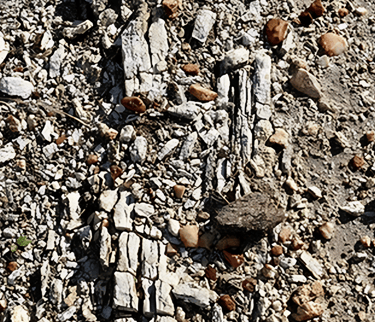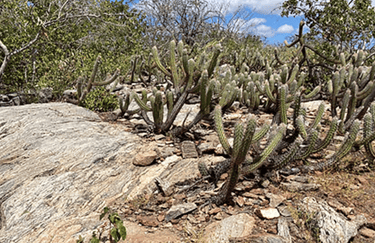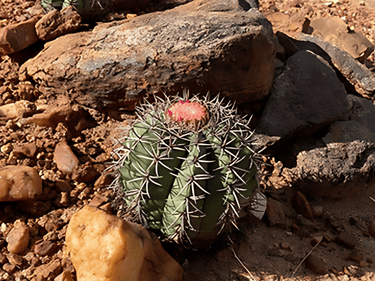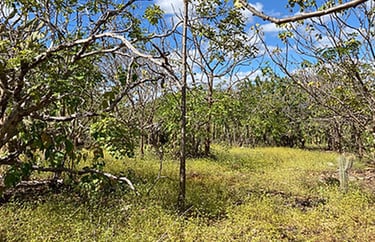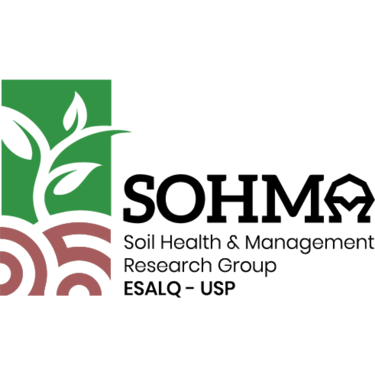Nature-Based Solutions for Climate Change Mitigation
CARBON BALANCE IN AGRICULTURAL SYSTEMS: REVEALING THE IMPACT OF ADOPTING SUSTAINABLE MANAGEMENT PRACTICES ON SOIL CARBON STOCKS AND GREENHOUSE GAS EMISSIONS
This project is part of a Bayer initiative to establish a network of researchers (called "Carbon experts") related to the subject of "soil carbon and greenhouse gas emissions in agricultural systems". This project will last three years and will be developed based on four technological routes:
Technological route 1: Soil carbon stocks;
Technological route 2: Greenhouse gas emissions;
Technological route 3: Carbon balance;
Technological route 4: Mathematical modeling and integration of results.
Supervisor: Prof. Maurício Roberto Cherubin (ESALQ/USP)
Supervisor: Prof. Carlos Eduardo Pellegrino Cerri (ESALQ/USP)
Funding Agency: BAYER
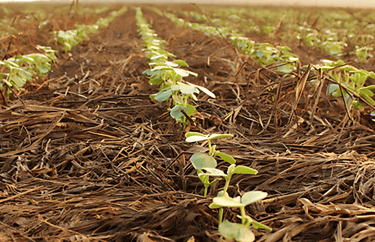

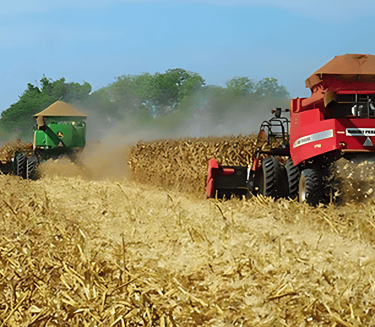

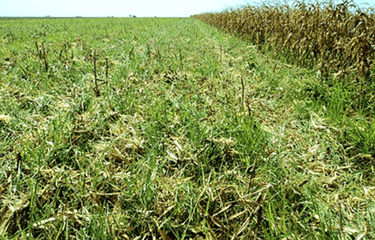

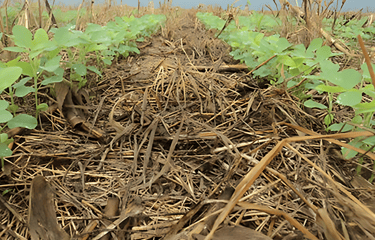

AGRI-PV SYSTEM: COMBINING SOLAR ENERGY PRODUCTION WITH FOOD PRODUCTION AND ADAPTATION TO CLIMATE CHANGE ("AGRIPV_BRAZIL")
The main objective of the project is to promote a sustainable land intensification solution through the creation of an Agri-PV pilot system that combines electricity production from PV panels with food production, contributing to a more sustainable energy transition in Brazil.
To achieve this goal, the following specific objectives were established:
Install an experimental pilot station with the Agri-PV system in Brazil to measure and monitor electricity production and food production over time;
Evaluate the efficiency of electricity production in a PV system integrated with agriculture;
Establish agricultural systems (e.g. vegetables, cereals and/or pastures) together with PV plants and evaluate the performance (growth and yield) of the crops;
Measure soil C sequestration in Agri-PV and in reference systems (PV and agriculture);
Assess the impacts of the Agri-PV system on key soil-related ecosystem services (soil biodiversity, water regulation, nutrient cycling, erosion control, etc.);
Generate data to promote synergies in the electricity and agriculture sectors to support energy policy regulations, climate change agreements and international commitments;
Refine the Agri-PV performance estimation model.
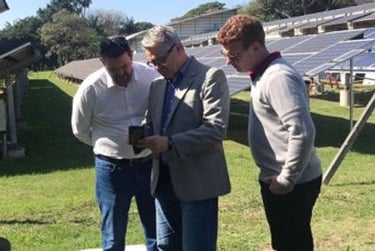



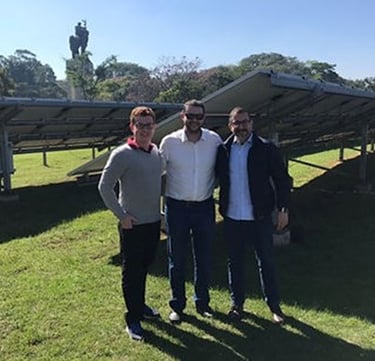

SOIL CARBON SEQUESTRATION THROUGH INTEGRATED AGRICULTURAL SYSTEMS IN BRAZIL - "Ag4C"
Ag4C is one of three projects within the Nature-Based Solution (NBC) program of the Research Center for Greenhouse Gas Innovation (RCG2I), funded by FAPESP/SHELL. The main goal of the project is to measure the contributions of integrated agricultural systems to carbon (C) sequestration, to help Brazil meet its NDCs under the Paris Agreement.
To achieve this goal, the following specific objectives were established:
Measure changes in soil carbon stocks induced by the adoption of integrated agricultural systems (e.g., crop rotation; agroforestry; crop-livestock system (CLI); crop-livestock-forestry system (CLF));
Understand the mechanisms of C storage and stabilization in soils using fractionation methods and synchrotron-based techniques;
Quantify soil greenhouse gas (GHG) emissions (CO2, N2O and CH4) in integrated agricultural systems to refine data from national GHG inventories;
Decipher the interaction of soil biota with soil C stabilization and GHG emissions in integrated agricultural systems;
Apply modeling tools to assess the impacts of land use change scenarios and NDC scenarios on C sequestration in integrated agricultural systems in Brazil;
Assess the impacts of adopting integrated agricultural systems on the provision of ecosystem services in Brazil;
Provide land management and public policy recommendations to support effective nature-based solutions to mitigate climate change and sustainably promote human well-being.
Supervisor: Prof. Maurício R. Cherubin – ESALQ/USP
Associated Reasearchers:
Prof. Carlos Eduardo P. Cerri – ESALQ/USP
Prof. Cimélio Bayer - UFRGS
Prof. Ciro A. Rosolen – UNESP
Prof. David M. Lapola – UNICAMP
Prof. Jeferson Dieckow – UFPR
Dr. João L. N. Carvalho – LNBR/CNPEM
Prof. Plinio B. de Camargo – CENA/USP
Funding Agency: FAPESP/SHELL – RCG2I (USP) 20/15230-5








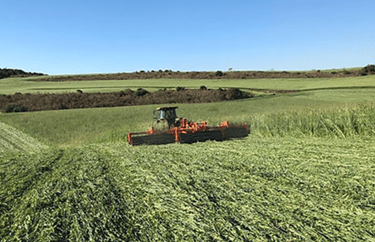

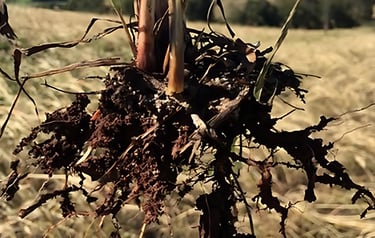

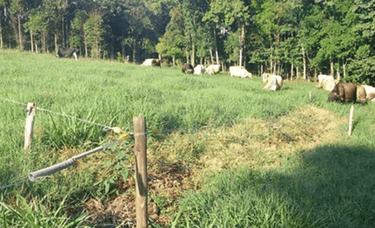

CAATINGA MICROBIOME INITIATIVE: DISENTANGLING THE MICROBIOME ACROSS DESERTIFICATION AND RESTORATION PROCESSES
The “Caatinga Microbiome Initiative: disentangling the microbiome across desertification and restoration processes” aims to study the effects of desertification and restoration on soil microbial communities in the Caatinga biome. It includes studies on diversity, functionality of microbial communities, and soil health in natural, degraded, and restored areas of the Caatinga. This Initiative brings together researchers from leading institutions that work with Caatinga soils in Brazil with the aim of standardizing a protocol to assess the soil microbiome in the desertification and restoration processes found in Brazilian drylands.
Partner Institutions:
Federal University of Ceará (UFC), Federal University of Piauí (UFPI), Center for Nuclear Energy in Agriculture (CENA/USP), Federal University of Agreste Pernambucano (UFAPE), Semiarid National Institute (INSA), “Luiz de Queiroz” College of Agriculture (ESALQ/USP).
